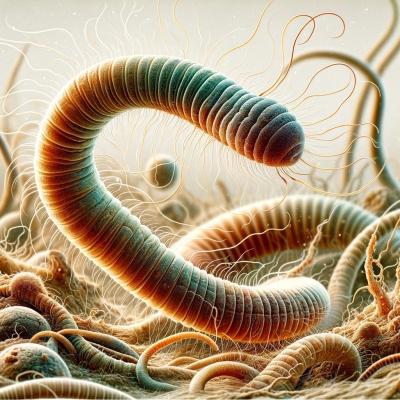
New Nematode Species Found
UC Riverside scientists have discovered a new nematode species that infects and kills insects. This worm may be able to control crop pests in areas which are hot and wet, where other species cannot thrive.
This newly identified nematode is in the family of nematodes called Steinernema. Other species in this family have been used in agricultural insect pests without pesticides for decades. Steinernema are harmless to any mammals. They were first discovered in the 1920s.
Trillions of these small worms are sprayed on crops every year. There are more than 100 species but scientists are always looking for more, as each species has unique adaptability and can attack different insect pests.
Scientists at UC Riverside stumbled on the species by accident when analyzing the DNA of samples from Thailand. They realized it was a completely different species than previously identified.
UCR nematology professor Adler Dillman and his colleagues have now reported the new species in the Journal of Parasitology. They are tiny, about half the width of a human hair and just under 1 millimeter long. The new species has been named Steinernema adamsi after Byron Adams, Biology Department chair at Brigham Young University.
"A parasite that poops out pathogenic stuff to help kill its host, that's unusual right out of the gate," said Dillman. "It's like something out of a James Cameron movie." Within 48 hours of infection, the insect is dead. Ten or fifteen nematodes can multiply to 80,000 in one life cycle. Experiments have proven that the new species kills insects, after testing them on moths.
More research will be done on this new nematode to identify and catalog its unique properties. The scientists still need to discover all the insects it can be effective against. Most species in the same genus can kill hundreds of species of insects, so there is a lot of excitement around this new species S. adamsi.
Source: Phys.org
